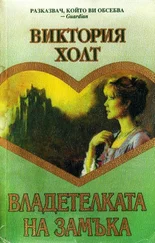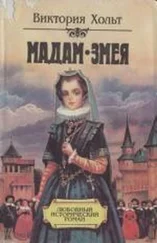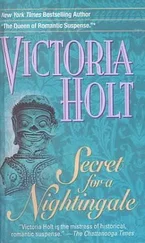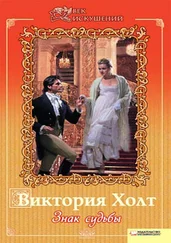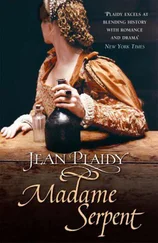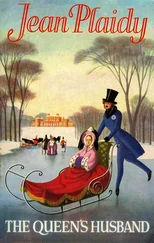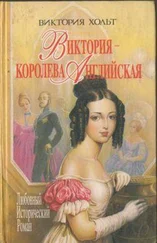Виктория Холт - It began in Vauxhall Gardens
Здесь есть возможность читать онлайн «Виктория Холт - It began in Vauxhall Gardens» весь текст электронной книги совершенно бесплатно (целиком полную версию без сокращений). В некоторых случаях можно слушать аудио, скачать через торрент в формате fb2 и присутствует краткое содержание. Жанр: Исторические любовные романы, на английском языке. Описание произведения, (предисловие) а так же отзывы посетителей доступны на портале библиотеки ЛибКат.
- Название:It began in Vauxhall Gardens
- Автор:
- Жанр:
- Год:неизвестен
- ISBN:нет данных
- Рейтинг книги:5 / 5. Голосов: 1
-
Избранное:Добавить в избранное
- Отзывы:
-
Ваша оценка:
- 100
- 1
- 2
- 3
- 4
- 5
It began in Vauxhall Gardens: краткое содержание, описание и аннотация
Предлагаем к чтению аннотацию, описание, краткое содержание или предисловие (зависит от того, что написал сам автор книги «It began in Vauxhall Gardens»). Если вы не нашли необходимую информацию о книге — напишите в комментариях, мы постараемся отыскать её.
It began in Vauxhall Gardens — читать онлайн бесплатно полную книгу (весь текст) целиком
Ниже представлен текст книги, разбитый по страницам. Система сохранения места последней прочитанной страницы, позволяет с удобством читать онлайн бесплатно книгу «It began in Vauxhall Gardens», без необходимости каждый раз заново искать на чём Вы остановились. Поставьте закладку, и сможете в любой момент перейти на страницу, на которой закончили чтение.
Интервал:
Закладка:
"What was that?" asked Sister Emilie.
"I am sorry, ma soeur. I was thinking of the nun who had a lover and was walled up in the chapel."
Emilie was disturbed.
She said: "That is not the way to show your penitence. You must not speak of such things here ... in a holy convent."
"No, ma soeur"
There was silence. Melisande went on stitching, still thinking of the nun and her lover. It was worth while to stitch this hateful shirt for the sake of the day's adventure. Perhaps having a lover—since it must not be spoken of, and it was the exciting things of life which were forbidden—was so much more wonderful that it was even worth while being walled up in a chapel afterwards in the cold and dark, there to stay through the centuries.
In the cold bare room Therese and Eugenie stood before the table at which sat the Mother.
The Mother's hands were folded on her breast. It was a characteristic attitude when disturbed. She was sixty-three but she looked older; her face was wrinkled and almost colourless; her serenity was not easily disturbed over any matter other than that which concerned those whom she called her children ... the little ones who had been given into her care.
Eugenie spoke. She said: "Afa Mere, it is most alarming. The child purposefully did this thing. To take off her sabots —that was wickedness to start with, but to let one fall at the feet of this man ... deliberately! We do not know how to deal with such a matter."
"He is staying at the inn," said the Mother, shaking her head. "It is unwise."
"Mother, you think it is he?"
"I think, Sister Therese, it must be."
"But it was the child who made the encounter possible."
"Yes, yes, but he must have shown his interest in her in some way."
"There is something about the child," said Therese. "Yes, there is something."
"A wantonness," put in Eugenie.
"She is essentially of the world," said the Mother, and although she was silent for a while, her lips moved. She was talking to saints, the sisters knew; she would be seen gliding about the Convent, while her lips moved thus. All knew that she was praying to the saints. To whom did she pray now? wondered Therese. To Saint Christopher? Like the Christ-bearer, the Mother was seeking to carry a child across the bridgeless river, and like the saint she was finding the burden too much for her.
She looked up suddenly and said: "Be seated."
The Sisters sat and there was again silence, while all three continued to think of Melisande. She was thirteen. An impressionable age, thought Sister Therese, looking back over her life, an age when it was possible for the feet to be led along those paths which opened out to voluptuousness, to revelry and sin, winding on and on away from virtue and piety. Sister Eugenie, who had lived all her life in the Convent, was thinking that the simple solution was to whip the child and put her into solitary confinement until the Englishman left the town.
Thirteen! thought the Mother. I was thirteen fifty years ago. Then there had seemed to be security and peace. She saw herself in her parents' mansion near St. Germain; she saw the schoolroom and the governess; she saw the servants when they had begun to show fear in their eyes. They had locked up the house with great care at night. They had whispered together. "Did you hear shouting last night? What if they should come... . Hush, the little one listens." She recalled the gardens—the trees in bloom, the fountains playing; she remembered the day when her father and mother had come riding there in great haste. "Jeanne ... upstairs ... get your cloak... . There is no time to lose." The whispering of the servants, the anxious looks, the haste of her parents ... they were all like the ominous beating of drums that warned of death and danger. She had not understood then; she had run upstairs knowing only that that which they feared was about to come to pass. We are going to run away from it, she thought. We shall be safe now. But she was wrong. They did not run away. Before she was able to return to them there were shouts in the hall and those whom she thought of for years afterwards as the 'ugly people' were in the hall. She had peered through the banisters and had seen them take her father and mother; they were all over the house; nowhere was safe; nowhere was sacred. She heard the smashing of glass, the shouts, the screams, the drunken voices singing the song which she would never forget.
"Allons, enfants de la patrie, Lejour de gloire est arrive. Contre nous, de la tyrannie Le couteau sanglant est leve... ."
And they had taken her beloved parents away to the Place de Greve where many heads were falling to that couteau. She had escaped with her governess who had taken her across the gardens to the copse; and the ugly shrieking people had not come that way. Little Jeanne and her governess had ridden through the darkness to the Convent Notre Dame Marie; and there she had stayed and lived ever since, shut away from horror, shut away from fear. That had happened nearly fifty years ago; and at the time she had been the same age as the little Melisande.
At such an age a child must be carefully protected. The Mother knew what it was even now to wake in the night and see the ugly faces, the blood on a beloved face, the tearing of a woman's silk dress, to hear the screams for mercy. Through her dreams—like drum beats—she heard the notes of the Marseillaise. She hated the world because she was afraid of the world; she wanted to take all little children and bring them into the security of the Convent; she wished their lives—as hers was—to be given to prayer and the service of others. She would like to gather them to her like a mother-angel protecting them from the dangers of the world outside.
But she was wise enough to know that there were some who did not wish to be protected. Melisande was one of these, and she believed they needed special care.
Therese was thinking of labouring in the fields, of the ripple of Jean-Pierre's muscles. He had shown her his arms and said: "See how strong I am, little Therese! I could lift you up. I could carry you off... and you'd not be able to stop me." She had been thirteen then. Life could be dangerous at thirteen.
The Mother had come to a decision. "It must be explained to him," she said. "Tomorrow you, Sister Therese and you, Sister Eugenie, shall go to the inn and ask to speak to him. You must speak to him with the utmost frankness. Ask him if he has any special interest in the child. If he is the man, he will know what we mean. Tell him that it is unwise of him to come here. The child is quickwitted. If he shows interest in her she may guess something near the truth. He must be asked not to come here, disturbing her, unless he has some proposition to lay before us."
The Sisters bowed their heads.
"It is to be hoped he has not," continued the Mother. "The child needs security, a life of serenity. I had hoped she might become one of us."
Sister Eugenie looked dubious and Therese shook her head.
"No, I fear not," went on the Mother. "But she must be guarded well until she is older. To put ideas into a head such as that one, might be to put sin there too."
"You are as usual right, ma Mere" said Therese.
"So ... see that she does not go out whilst he is here; and, to-morrow, go to him and say what I have told you. It is the best way."
The Sisters went out, leaving the Mother to hear again the shouts of the revolutionaries with the strains of the Marseillaise coming back to her over the years.
The clock ticked on. The seams were long. Melisande divided them up in her thoughts so that the material was the town and the needle herself walking through it. Here was the church, here the boat yard, here the baker's shop, the cottages, the inn, the river and the ruins of the chateau. She pictured the baker at the door as she passed. "A gateau for the little one?" It was delicious. She could taste the spices which the baker knew so well how to mingle in his delightful confections. Sister Therese and Sister Eugenie had not noticed. The baker winked. "We will deceive them," said that wink. "You shall have cakes because you are the prettiest, the most charming of the children, and it pleases me to give."
Читать дальшеИнтервал:
Закладка:
Похожие книги на «It began in Vauxhall Gardens»
Представляем Вашему вниманию похожие книги на «It began in Vauxhall Gardens» списком для выбора. Мы отобрали схожую по названию и смыслу литературу в надежде предоставить читателям больше вариантов отыскать новые, интересные, ещё непрочитанные произведения.
Обсуждение, отзывы о книге «It began in Vauxhall Gardens» и просто собственные мнения читателей. Оставьте ваши комментарии, напишите, что Вы думаете о произведении, его смысле или главных героях. Укажите что конкретно понравилось, а что нет, и почему Вы так считаете.

